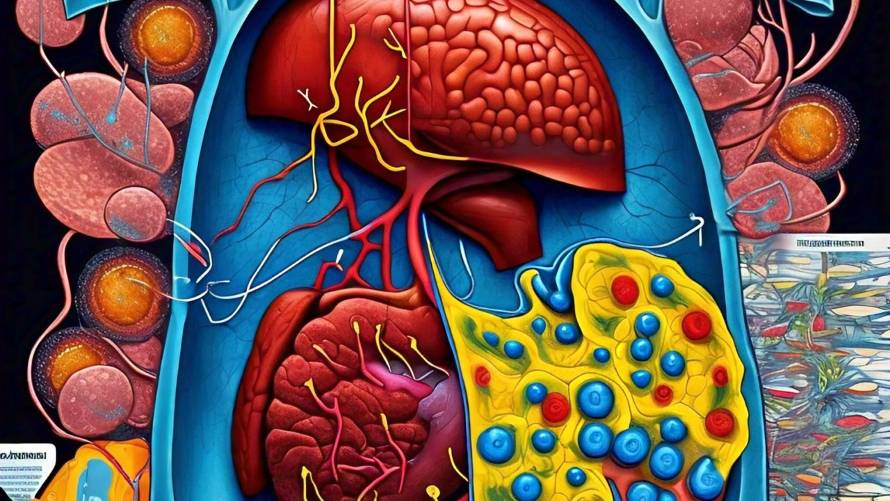Researchers from the Abramson Cancer Center and Perelman School of Medicine at the University of Pennsylvania have discovered that liver inflammation caused by cancers elsewhere in the body can significantly reduce the effectiveness of immunotherapy treatments. The study, published in Nature Immunology, sheds light on why some cancer patients respond poorly to these promising therapies.
Serum Amyloid A Proteins: The Culprit Behind Immunotherapy Resistance
The research team found that cancer-induced liver inflammation triggers liver cells to release proteins called serum amyloid A (SAA) proteins into the bloodstream. These proteins circulate throughout the body and hinder the ability of T cells, a crucial component of the immune system, to infiltrate and attack tumors in other parts of the body.
“Our findings show that liver cells—with their release of SAA proteins—effectively serve as an immune checkpoint regulating anti-cancer immunity, making them a promising therapeutic target,” said senior author Gregory Beatty, MD, PhD, an associate professor of Hematology-Oncology and the director of Clinical and Translational Research for the Penn Pancreatic Cancer Research Center.
Investigating the Link Between Liver Inflammation and Immunotherapy Response
The study builds upon the team’s previous research, which showed how liver inflammation promotes pancreatic tumor metastasis and is associated with worse responses to immunotherapies in pancreatic cancer patients. In this latest study, the researchers used mouse models of pancreatic cancer to investigate how liver inflammation may block the effects of immune-boosting therapies.
They discovered that mice with less T cell infiltration in their tumors tended to have more liver inflammation and stronger signs of an inflammatory signaling pathway called the IL-6/JAK/STAT3 pathway. By deleting STAT3 or SAA proteins from liver cells, the researchers were able to restore dendritic cell production and T cell activity, leading to increased survival times and the likelihood of cures in mice with surgically removed pancreatic tumors.
Translating Findings to Human Patients
To determine if the findings in mice would translate to humans, the researchers measured SAA levels in tissue samples from patients whose pancreatic tumors had been surgically removed. They found that patients with low SAA levels at surgery had significantly longer survival times afterward, highlighting the potential clinical relevance of their discoveries.
“Now that we’ve shown how liver inflammation puts up a roadblock to immunotherapy, our next step is to see if the same pathway can be targeted to reverse inflammation in patients who already have liver metastasis,” Beatty said.
The research team is now working on setting up further preclinical and eventually clinical studies to investigate STAT3- and/or SAA-inhibiting agents as potential add-on therapies in combination with immunotherapy to improve cancer patient outcomes.


